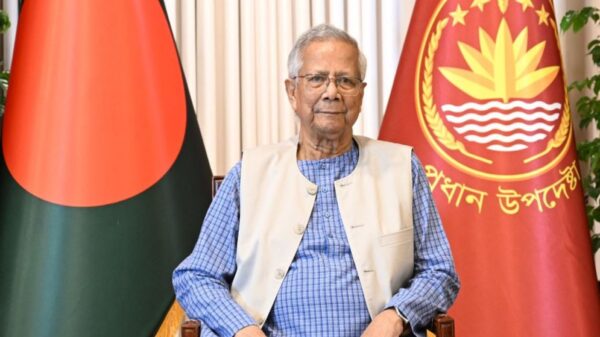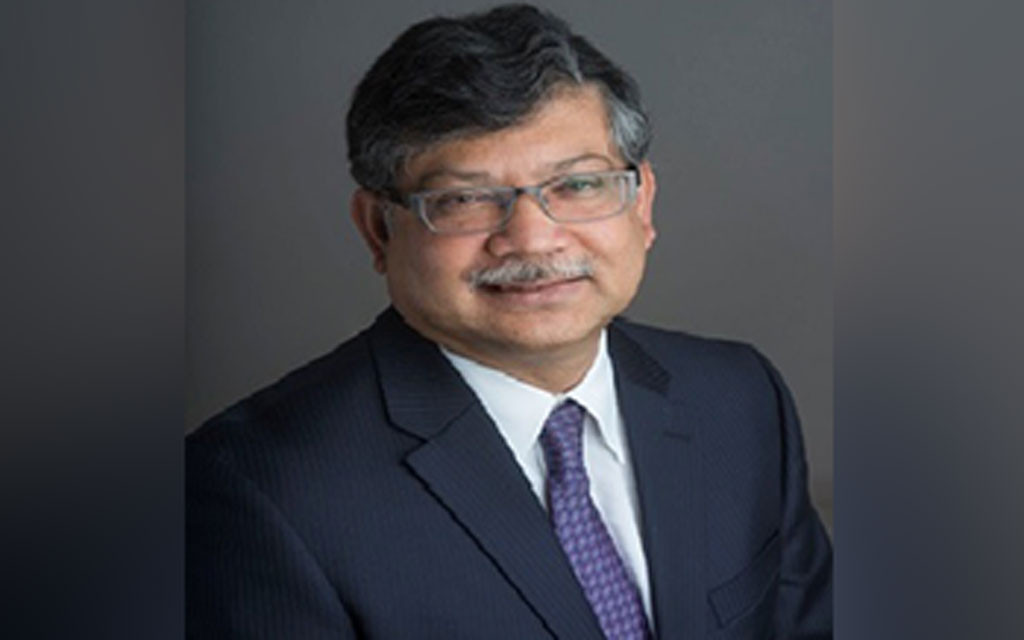Staff Reporter:
Foreign Secretary Masud Bin Momen on Wednesday underscored the potential of a trilateral partnership among Bangladesh, India and Japan — leveraging Bangladesh’s strategic location.
He said this partnership would focus on investment, market development, and enhanced connectivity, with India’s growing economy and Japan’s capital surplus playing crucial roles.
Speaking at a policy colloquium, the Foreign Secretary also urged Japan to expand its BIG-B initiative for regional prosperity and sustainable development.
Japanese Ambassador to Bangladesh Iwama Kiminori emphasized the rising geopolitical significance of Bangladesh in the global context.
The policy colloquium titled ‘From the Himalayas to the Bay of Bengal: New Possibilities in the Bang-ladesh, Japan, India Trilateral Partnership’ was held at the Syndicate Hall of North South University (NSU).
The event was organized by the university’s Center for Peace Studies (CPS) of the South Asian Institute of Policy and Governance (SIPG).
The session was chaired by Professor Atiqul Islam, Vice-Chancellor of NSU.
Former Foreign Secretary Shahidul Haque; Dr. Selim Raihan, Executive Director of the South Asian Network on Economic Modeling (SANEM); Sabyasachi Dutta, Executive Director of Asian Confluence, India; and Dr. M Jashim Uddin, Associate Professor of Political Science and Sociology at NSU, also spoke at the event.
Dr. Selim Raihan observed that the Bangladesh, Japan, and India partnership could spur economic growth in Bangladesh through improved connectivity, trade efficiency, and infrastructure development.
Highlighting the importance of greater transparency, digitization of customs, and removing non-tariff barriers, Dr. Raihan suggested unrestricted foreign direct investment from Bangladesh to India to stimu-late economic integration and industry growth.
Observing that India’s northeast region (NER) is a crucial connector for Bangladesh with India and South and Southeast Asia, Dutta said that extensive connectivity in the region can foster a competitive business climate and stimulate regional trade and economic growth.
The colloquium also focused on the challenges that need to be overcome to ensure the success of the tri-lateral partnership, with a particular focus on border stabilization.
The historical links between Bangladesh and the North East Region (NER) of India and the role of Japan in rejuvenating these connections were also discussed.
During the open dialogue, panelists answered questions from students, faculty, and journalists, moderat-ed by Professor Dr. Tawfique M. Haque, Director, CPS, and SIPG.
Professor Atiqul Islam hoped that the trilateral investment partnership would produce a positive impact for the entire region, encompassing India, Bangladesh, Nepal, and Bhutan.











































